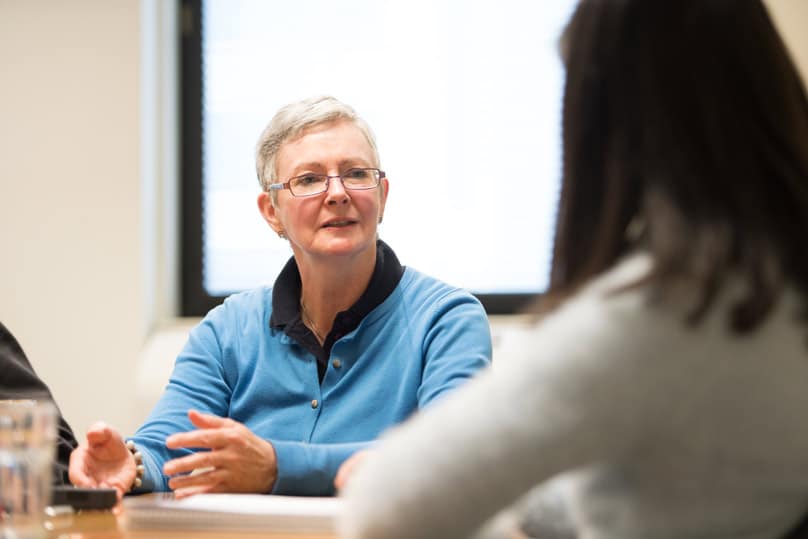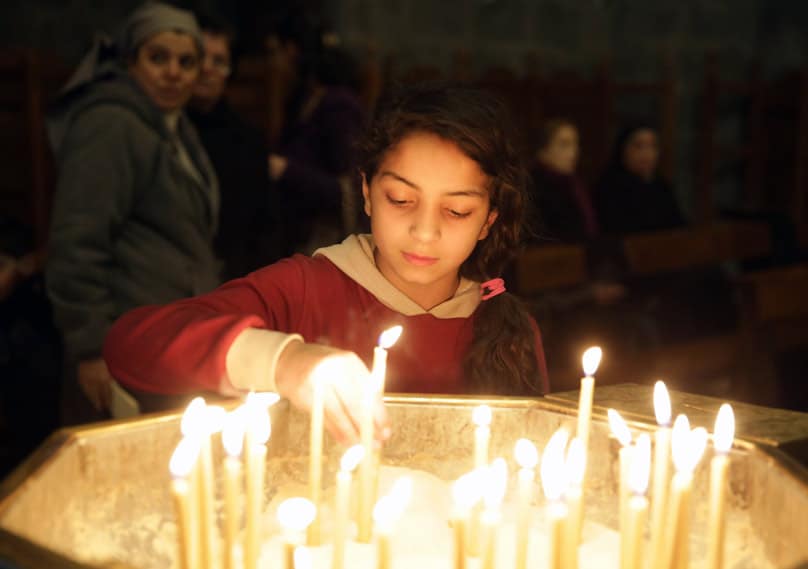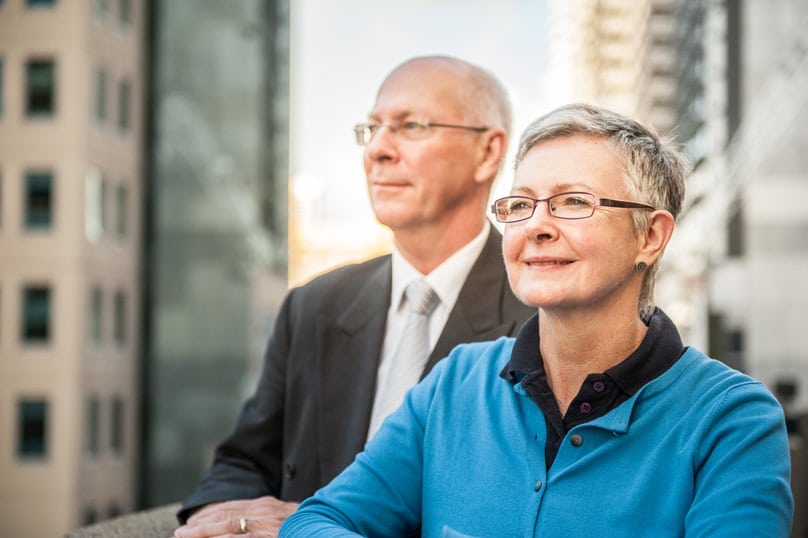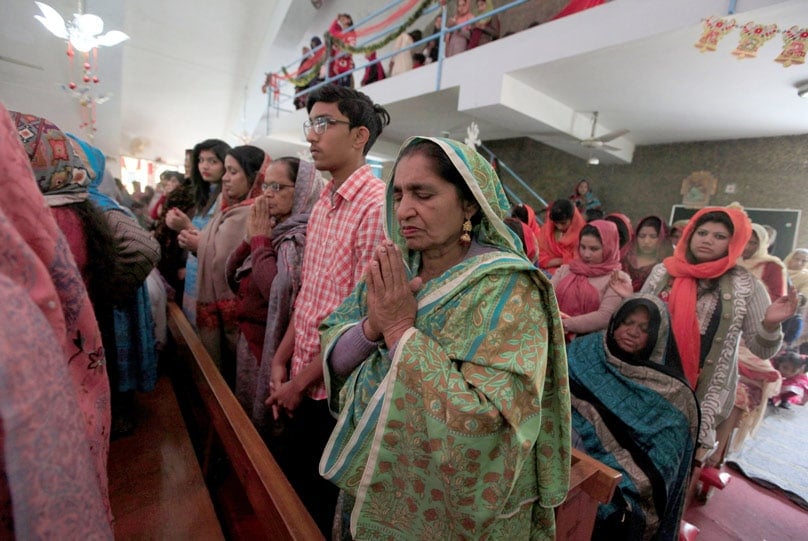
“What would I have done? Would I have had the courage to hold out as long as they have?”
Regina Lynch often asks herself these questions after meeting Christians around the world who have been persecuted for their faith.
As someone who has worked for Aid to the Church in Need (ACN) for 36 years, and as Director of Projects for the last five, Regina has travelled to many of the hotspot regions of the world where Christians have suffered the most.
Speaking specifically about the situation in China where the Communist government has long persecuted Christians, she says, “I’m very impressed by the faith of the Chinese Catholics. They are very devout. When you think of the many years of the Cultural Revolution, how many came through that, and most of those bishops have been in detention camps.”
“When I go on these trips and meet these people it’s almost a test of my faith, a challenge to my faith to think what would I have done? Would I have had the courage to hold out as long as they have?”

She tells the story of a Catholic man in Pakistan named Yousef who was accused of burning pages from the Koran after a game of cards with some of his Muslims neighbours had turned sour.
Yousef was illiterate and a daily wage earner with a wife and children. He was held prisoner by the police for three months under the country’s harsh anti-blasphemy law.
Regina met Yousef on the day of his release. “He had been tortured and had been told they would stop torturing him if he converted (to Islam). He refused and in the end it was the Justice and
Peace Commission of the Pakistani Bishops Conference that managed to get him released. We were amazed by his story.”
When Regina asked him how he had the strength to hold-up under torture, Yousef pointed to a crucifix hanging on the wall behind her and said, “But look, Christ suffered so much more than I did.”

“It happened so many times in Pakistan that we met people who said, ‘Yeah, but Christ suffered so much more than we did.’ The Christians are the lowest of the low in Pakistan. They have very menial jobs in the cities and the countryside but they’re very strong in their faith. So the situation is very bad for them.”
Aid to the Church in Need is an international Catholic charity under papal jurisdiction that seeks to alleviate the suffering of Christians like Yousef and his family. Founded by the late Dutch Norbertine priest, Fr Werenfried van Straaten in 1947, ACN seeks to provide spiritual and material support for Christians in countries where living their faith is a severe challenge.
This pastoral support consists of training seminarians and novices, training lay catechists, building chapels and houses for priests and nuns to live in, providing books and other materials. They also assist with transportation, “So the catechists can cycle out on their bicycles to visit the parishes or a boat on the Amazon for the priest whose parishes are all along the way,” Regina says.
ACN also supports Catholic media in many countries, providing start-up help for radio or TV stations in regions such as Africa or South America. “We see more and more the importance of reaching out to believers and to people new to the faith.”

Their Mirror newsletter reaches about 600,000 people and they have produced several publications including Youcat—a catechism for youth—and a children’s bible now available in 185 languages. Their next big project is a children’s catechism called Kidscat.
They also provide humanitarian aid where necessary, as they have done in recent times for the Christians of Syria and Iraq, who have been under siege from Islamic State. ACN have helped Christians fleeing these areas with food baskets, medicine, milk programs for children, housing for the displaced, fees for university, and rent for temporary accommodation.
“The aim of ACN is to help the Church carry out her mission, in particular where she is persecuted or suffering. It’s really about what we can do to help the Church carry out her pastoral mission of evangelisation. She comes up against these terrible obstacles because of persecution, discrimination and suffering,” Regina says.
A Catholic girl who grew up in Northern Ireland, Regina began as a secretary at ACN headquarters in Germany in 1980, and saw it initially as just a job. She soon began to discover what it was all about.
“That was the 1980s and it was still Iron Curtain times in Eastern Europe and I was beginning to learn about these priests and sisters and bishops who were imprisoned in camps, persecuted for their faith. I’d never heard of that before. ”
Feeling homesick, she often thought about returning to Northern Ireland. However, every time she was on the verge of leaving she would be offered more responsibility within the organisation.
She became Director of Projects in 2012, and is still based at ACN headquarters in Königstein, Germany. Consequently, she now speaks with a lilting accent—an interesting blend of Irish and German.
Regina and her team of 35 oversee the distribution of ACN’s annual budget which is often in the region of 80 to 90 million Euros. They receive around 8,000 project applications each year from all around the world and, in a good year, they fund about five-and-a-half thousand of those projects. They rely entirely on donations and receive no government grants.
Regina considers one of their most important works to be the up-keep of priests and religious sisters who work in missions, often under extremely difficult circumstances. Some religious sisters live and work at 4,000 metres high in the Andes. “They don’t get paid for their work. They have to exist and we give them what we call an existence help – a certain amount of money per head.”
An important source of aid for priests is Mass stipends—an amount of money given to a priest for each Mass he celebrates, to assist with the costs of his daily life. Through their donors, ACN distributed about 1.4 million stipends to priests in 2016, benefitting around 43,000 priests.
“That’s a heck of a lot,” Regina says. “But for a priest who lives in a mission station, in Burma for example, up on the border with China, his people might give him a chicken or something but he usually doesn’t have enough money to eat or buy fuel for his motorcycle.”
ACN consults with local Church leaders to ascertain the best ways they can assist Christians in specific areas.
Church leaders in Iraq have told ACN that they want Christians to return to the region, as they believe Christians are the peace-keepers of the Middle East. Regina travelled to Iraq in 2014 straight after the Christians began fleeing Mosul and the Nineveh Plains due to the advance of ISIS.
The Nineveh region has now been freed from ISIS and Regina says some of the Christians wish to return. “The most recent survey we did two months ago showed about 45 per cent want to go back to the villages.” When asked why the wished to return, the Christians responded, “This is our home for generations since the time of Christ. We want to stay.”
“We have started funding for re-building houses, but long-term we’re really interested in re-building churches, convents and priests’ houses,” Regina said.
In many countries where the Church is persecuted such as the Democratic Republic of Congo, Regina says the people are determined to stay as long as the priests and religious sisters stay. The Democratic Republic of Congo is in turmoil due to ethnic conflict and the Church is persecuted for speaking out against injustice. When she visited the country, Regina was unable to travel about freely for safety reasons.
“A priest came to visit us and he drove up and there were bullet holes along the side of his car. There had been a priest killed in a neighbouring parish a month or so before. The people say as long as the priests and sisters stay, they’re not going to leave.”
The heroism of the priests and religious on the ground in countries where the Church is persecuted is a constant theme in the stories Regina tells.
“There are so many heroes and heroines in the Church,” she says.
“In the Democratic Republic of Congo we met brave sisters: a community of Franciscan sisters who work with young girls living in refugee camps. When the girls go out to look for firewood they get raped by marauding soldiers and are then rejected by their families. The sisters take them in and teach them some sort of trade like sewing and through prayer, try to help them overcome the trauma. It’s very typical where you have conflict that usually the Church stays and can then become a target of whatever the government is at the time.”
If there is one thing Regina has learnt from her time with ACN, it is that the faith of Christians can be incredibly strong even under intense pressure.
“Our faith is stronger than we think. When push comes to shove, God doesn’t abandon us. We do survive. I remember bishops from the Middle East saying, when talking about the terrible situation, ‘Well, we’re still here after 2,000 years aren’t we?’ Our faith gives us a resilience that as an ordinary human being we wouldn’t have; it’s impossible.”
To find out more or to donate, visit: www.aidtochurch.org
